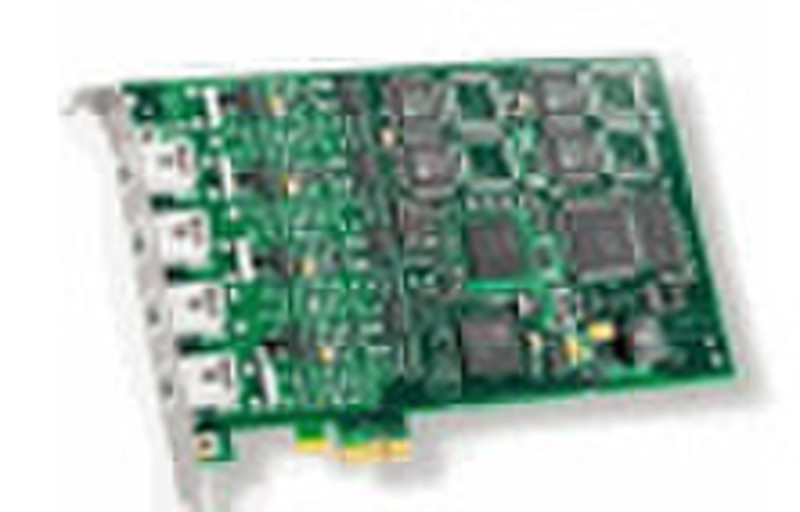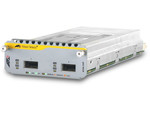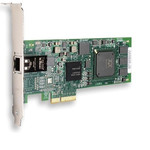Catalog
-
Catalog
- Antiquitäten & Kunst
- Auto & Motorrad: Fahrzeuge
- Baby
- Business & Industry
- Bücher
- Camping & Outdoor
- Feinschmecker
- Garden & patio
- Haustierbedarf
- Heimwerken & Garten
- HiFi & Audio
- Home, Construction, Renovation
- Household appliances
- Kleidung & Accessoires
- Modellbau
- Musik
- PC- & Videospiele
- Photo & camcorders
- Sammeln & Seltenes
- Spielzeug
- TV, Video, DVD
- Telekommunikation
- Uhren & Schmuck
- Wellness & Beauty
- computers & electronics
- entertainment & hobby
- fashion & lifestyle
- food, beverages & tobacco
- health & beauty
- institutional food services equipment
- medical equipment, accessories & supplies
- office
- sports & recreation
- vehicles & accessories
- weapons & ammunition
Filters
Search

Dialogic Diva UM-Analog-8 Internal Ethernet networking card
MPN: 306-383
🚚 Select the country of delivery:
Delivery from:
Germany
Sale and delivery by:
Where to buy and prices (Advertising *)
On Top
Technical specifications
On Top
Bandwidth
| Modem speed | 33.6 Kbit/s |
|---|---|
| Full duplex | Y |
Other features
| Ports quantity | 4 |
|---|---|
| Compliance industry standards | IEEE 802.3 |
| Channels quantity | 4 channels |
Ports & interfaces
| Host interface | PCI |
|---|---|
| Internal | Y |
| Interface | Ethernet |
Certificates
| Safety | ICES-003 Class B, CSA 60950-1, EN60950-1, EN55022, EN55024, FCC Part 15 Class B, UL60950-1 |
|---|
System requirements
| Mac compatibility | N |
|---|
Packaging content
| Quick start guide | Y |
|---|
Additionally
| Ethernet LAN connection | Y |
|---|---|
| Wireless technologies | Wired |
Diva UM-Analog-8, 4 ch., PCI, Fax (V34), VoIP, RTP, GSM, CNG, TTY
The Dialogic® Diva® UM-Analog Media Boards provide two, four, and eight ports and serve as an excellent communication platform, which scales from 2 to 64 channels (phone lines) per single server.
The Diva UM-Analog Media Boards offer voice, speech, conferencing, VoIP, modem and fax features, and can serve as a base for many communication applications. The boards are supported by most standard applications, and are also suitable for new application development. Diva UM-Analog Media Boards are available in Low Profile, Half Size, or Full Size form factors and are available in both PCI and PCI Express (PCIe) versions. Diva UM-Analog can be seamlessly combined with other Dialogic® Diva® Media Boards, such as E1/T1, ISDN PRI/BRI, and VoIP.
Because both PCI and PCIe versions share the same feature sets, migration from a PCI server hardware to PCI Express server is easy. PCI and PCIe versions can also be used in the same server.
The Diva UM-Analog Media Boards support the same set of programming interfaces as other Diva® Media Boards: the three Dialogic® Diva® APIs, CAPI 2.0, COM port, WMP - WAN Miniport, TTY, Asterisk, and SIP/RTP. Because of consistent interface support, applications written for one Diva Media Board will normally work without modification with Diva UM-Analog Media Boards.
The Diva UM-Analog-2, UM-Analog-4, and UM-Analog-8 Media Boards support fax transmissions on half (50%) of their available channels. The feature set of the Diva Media Boards in the UM series has been designed to meet the needs of typical Unified Messaging applications.
Highlights:
- Onboard CPU with large RAM and powerful FPGA chip for fast data streaming between the host CPU, the DSPs, the phone line and the other active components onboard;
- Can remove performance bottlenecks by offloading key realtime tasks that would ordinarily place an excessive burden on the host server, allowing Quality of Service (for example, voice quality and connection speed) to be more consistent;
- One powerful DSP dedicated to each communications channel;
- Provides real-time processing of complex operations (such as V.90 data modem, V.34 fax receiver and transmitter, voice compression, or echo cancellation) without reducing overall system performance, which lowers implementation costs;
- Sophisticated hardware design;
- Operates with low power consumption;
- Conforms to plug-and-play standards;
- Easy installation and operation;
- Implements most supplementary services and many different analog signaling protocols;
- Allows application compatibility with major PBXs and can make a system based Dialogic® Diva® technology ready for worldwide use;
- Pulse and tone dialing;
- Handles enterprise voice, conferencing, fax, and remote access applications via any PBX offering analog trunk interfaces;
- Voice packetization into Real-time Transport Protocol (RTP), adaptive jitter buffer, voice compression (G.726, GSM), and Comfort Noise Generation (CNG);
- Permits legacy voice, speech, and conferencing applications to be used with VoIP clients and IP phones;
- Supports the same programming interfaces as other Dialogic® Diva® Media Boards: CAPI 2.0, COM port, TTY, Dialogic® Diva® APIs and others;
- Reduces porting efforts and time to market by making Diva Media Boards compatible with standard telephony and communications applications;
- Up to eight Diva Media Boards of the same or different types can operate concurrently in a single server Easy scalability and flexibility to address an organization’s communications needs in changing environments, such as VoIP.
The Diva UM-Analog Media Boards offer voice, speech, conferencing, VoIP, modem and fax features, and can serve as a base for many communication applications. The boards are supported by most standard applications, and are also suitable for new application development. Diva UM-Analog Media Boards are available in Low Profile, Half Size, or Full Size form factors and are available in both PCI and PCI Express (PCIe) versions. Diva UM-Analog can be seamlessly combined with other Dialogic® Diva® Media Boards, such as E1/T1, ISDN PRI/BRI, and VoIP.
Because both PCI and PCIe versions share the same feature sets, migration from a PCI server hardware to PCI Express server is easy. PCI and PCIe versions can also be used in the same server.
The Diva UM-Analog Media Boards support the same set of programming interfaces as other Diva® Media Boards: the three Dialogic® Diva® APIs, CAPI 2.0, COM port, WMP - WAN Miniport, TTY, Asterisk, and SIP/RTP. Because of consistent interface support, applications written for one Diva Media Board will normally work without modification with Diva UM-Analog Media Boards.
The Diva UM-Analog-2, UM-Analog-4, and UM-Analog-8 Media Boards support fax transmissions on half (50%) of their available channels. The feature set of the Diva Media Boards in the UM series has been designed to meet the needs of typical Unified Messaging applications.
Highlights:
- Onboard CPU with large RAM and powerful FPGA chip for fast data streaming between the host CPU, the DSPs, the phone line and the other active components onboard;
- Can remove performance bottlenecks by offloading key realtime tasks that would ordinarily place an excessive burden on the host server, allowing Quality of Service (for example, voice quality and connection speed) to be more consistent;
- One powerful DSP dedicated to each communications channel;
- Provides real-time processing of complex operations (such as V.90 data modem, V.34 fax receiver and transmitter, voice compression, or echo cancellation) without reducing overall system performance, which lowers implementation costs;
- Sophisticated hardware design;
- Operates with low power consumption;
- Conforms to plug-and-play standards;
- Easy installation and operation;
- Implements most supplementary services and many different analog signaling protocols;
- Allows application compatibility with major PBXs and can make a system based Dialogic® Diva® technology ready for worldwide use;
- Pulse and tone dialing;
- Handles enterprise voice, conferencing, fax, and remote access applications via any PBX offering analog trunk interfaces;
- Voice packetization into Real-time Transport Protocol (RTP), adaptive jitter buffer, voice compression (G.726, GSM), and Comfort Noise Generation (CNG);
- Permits legacy voice, speech, and conferencing applications to be used with VoIP clients and IP phones;
- Supports the same programming interfaces as other Dialogic® Diva® Media Boards: CAPI 2.0, COM port, TTY, Dialogic® Diva® APIs and others;
- Reduces porting efforts and time to market by making Diva Media Boards compatible with standard telephony and communications applications;
- Up to eight Diva Media Boards of the same or different types can operate concurrently in a single server Easy scalability and flexibility to address an organization’s communications needs in changing environments, such as VoIP.
Similar offers
On Top
-
Payment Methods
We accept:














